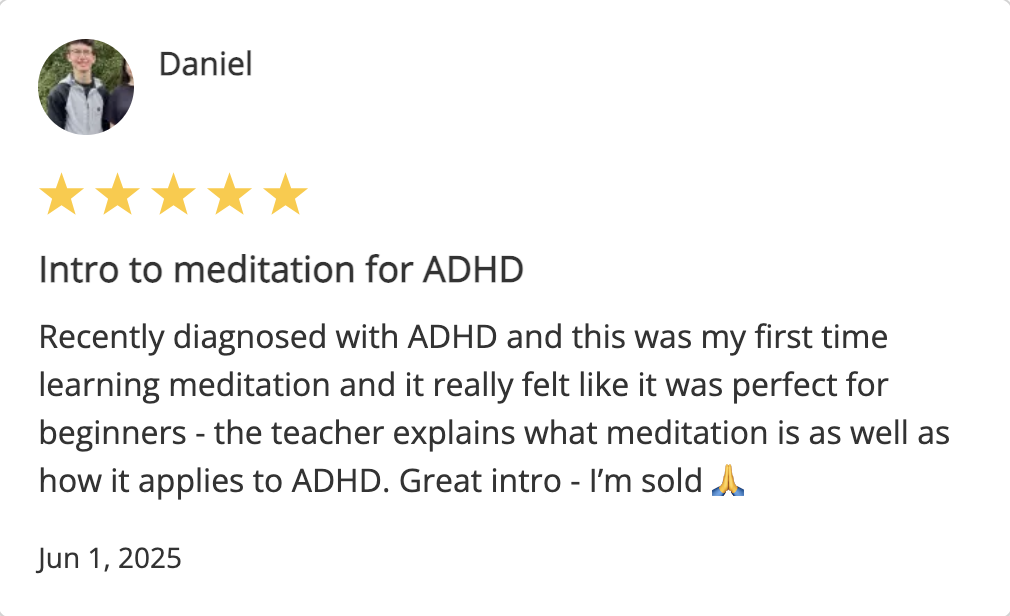Intro to
Meditation
for ADHD
Bring more PRESENCE, awareness and acceptance into your life through 7 expert-led, ADHD focused Meditation classes. ADHD challenges covered:
Managing attention
Emotional Regulation
Impulse Control
Self-acceptance
Self-compassion
Fostering presence
Your Teacher:
Alfie Golden MsC
Alfie Golden MsC is a graduate of University College Cork with a degree in Applied Psychology followed by a master’s degree in Mindfulness-Based Wellbeing.
He has been practising mindfulness meditation for over 10 years now and is passionate about helping others to discover the benefits for themselves of following evidence-based training in mindfulness.
Alfie offers courses in Mindfulness-Based Stress Reduction, Mindfulness in the Workplace, talks and workshops along with one-to-one mindfulness training.
Alfie is a graduate member of the Psychological Society of Ireland as well as currently serving on the board of directors of the Mindfulness Teachers Association of Ireland.
For more information you can check out https://alfiegolden.substack.com for weekly posts about mindfulness and wellbeing as well as wildlife and nature photography.
Research
Meditation
& effects on
the brain
Evidence supports the efficacy of week-long or month-long physical exercise or mindfulness meditation programs in mitigating ADHD symptoms (Cornelius et al, 2017; Chimiklis et al, 2018; Vekety et al, 2021)
Meditation has been shown to improve oxygenation and activity in the prefrontal cortex, enhancing its functionality. A study using near-infrared spectroscopy found that meditation increases oxygenation in this region, which is crucial for executive function, decision-making, and emotional regulation. - Cureus Journal of Medical Science (2022)
Research suggests that mindfulness meditation can enhance attention and focus by activating brain areas associated with the attention network, such as the anterior cingulate cortex, and may influence dopamine levels, thereby improving attentional control.
- Proceedings of the National Academy of Sciences (2007)Meditation can significantly influence the autonomic nervous system by enhancing heart rate variability and altering the balance between the parasympathetic and sympathetic systems, promoting relaxation and reducing stress responses.
International Journal of Psychophysiology (2001)







